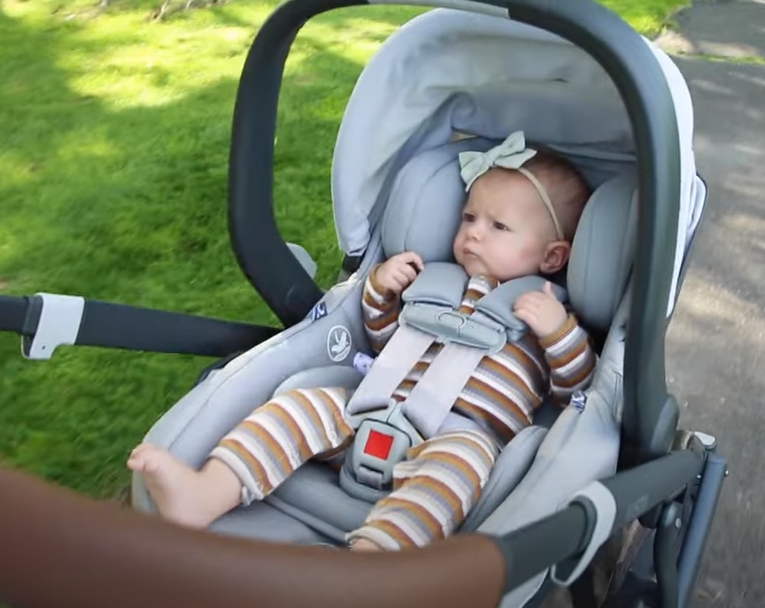
Stop Yelling – The Baby Cubby
A huge discussion in the parenting world right now is around gentle parenting. Something widely talked about with gentle parenting is not yelling at your kids. This is a lot of times easier said then done, and I’m sorry but I will be screaming if they are about to run into the parking lot—however, that’s also kind of the point. If I’m yelling all the time, when it really counts, it’ll be commonplace and they’ll continue to drown me out as they zip into a busy road. That’s why it’s important to stop yelling so much.
So how do we keep from yelling all of the time? Funnily enough, when looking up different ideas on this subject, they all sounded very similar to the advice my professor in my classroom management class would tell me to keep control of my students, and I’ve found it works for parenting too:
Keep it short and sweet–it’s all about making sure you are as clear as possible.
Be patient.
Make sure procedures (this could also be routines) are set and consistent.
Don’t lose your power.
Keep the “scary” stuff in your back pocket for when you really want to get your point across, like my dad pounding his fists on the wall when I snuck a boy in the house and he caught me (I know I know, I should have snuck out of the house. What was I thinking?). It was very effective and I never snuck a boy in the house again.
Have Clear Communication
Do you remember writing scientific procedures in your science classes? They had to be detailed and perfect so anyone could replicate the procedures. A lot of teachers would have us practice by thinking through the process of making a peanut butter and jelly sandwich.
Oftentimes we would be docked for missing what seemed like obvious steps, but no step was to be left out because what if this person wasn’t a person and really an alien and had never heard of a peanut butter and jelly sandwich before? Or what if you were the first one to split an atom or to develop cold fusion? Or what if it’s a toddler who quite literally is learning new things every single day and even their own emotions can feel new and foreign to them?
Make sure that you are explaining things clearly and precisely. Don’t use big words and figurative language, mumble, or skip over important steps. If you tell them to go pee and they pee right then and there, don’t yell at them–maybe you should have told them to go pee in the potty.
Being clear and precise with instructions and expectations will prevent your child from misunderstanding and causing you enough frustration that you feel the need to yell at them.
Be Patient
Something every teacher is asked to do is to write their daily objectives up on the board. The idea behind it is that kids will see it and think, “Oh I see we are doing long division today. I can prepare mentally.” or, “After our ACT prep we will be reading The Great Gatsby. I’ll make sure I have my book.”
Unfortunately, I could have every answer to the test written on the board and my students still wouldn’t be looking at it. So I make sure that I explicitly tell my students exactly what we are doing, and in what order, super clearly at the start of class.
I also know that maybe, even though Ms. Love is truly the most entertaining and hilarious person alive, that TikTok and Snapchat are pretty funny too. Because of this, I also have everything laid out on Canvas (our online learning program). And guess what? Even after all of that I will still have kids come up to me and ask what are we supposed to do? Do I yell? No. I patiently explain again.
I get it. Kids should be paying attention the first time, but once upon a time, I was that teenager who was crazy anxious and zoning out because her boyfriend was making out with other girls or exhausted because I had practice until 10 pm the night before and again at 6 am that morning. I was asking the fourth time.
I was also that little kid who could not sit still. My mind was going a million miles a minute and had no concept of sitting on my bum or focusing. If I asked again and you yelled, I’d continue to zone out or shut down.
Remember what it was like to be a child so you can summon the patience to repeat yourself one more time, if needed.
Stay Consistent
Covid made things run a little awkwardly in the classroom. We had to have things all on Canvas–then we didn’t. A 40% was passing–then it went back to 60%. They could turn anything in whenever they wanted–then they actually had late penalties. They had to be excused from everything if they had Covid for two weeks. Now they still have to do their work.
The kids are still struggling to come back to normal classroom routines. It makes sense, though. Nothing has been consistent the last three years, and it makes sense.
However, in our own homes with our little ones, we can stay consistent with consequences and expectations. This goes between spouses as well. If you tell your child to not jump on the couch, but your spouse says it’s okay, that’s confusing. If you let them eat on the couch one day and decide the next it’s not that’s confusing.
It’s impossible for your child to follow the rules if the rules are constantly moving. And if your kid isn’t ever following the rules, it will be much harder for you to not yell at them.
Don’t Lose Your Power
As a teacher, a big no-no is to send your students to the principal’s office right off the bat because then the kid knows you can’t handle them and you have to pawn them off to someone else. The same goes for you and your partner.
It is one thing to parent together as a team and to back one another up, but it is another if one of you is the ‘closer’ that’s only called in for special instances, like “Big Papi.”
If you rely on your significant other to always be the one to lay down the law, your kids will learn that “I can do whatever I want because dad/mom isn’t here and mom/dad needs them to tell me what to do.” You’ll be screaming all day long at them with no force behind you because they know the other parent is the one who actually disciplines them.
This also comes with caving in. Oftentimes the one will follow the other. Your kid throws a tantrum so you cave and get them the sucker. Your kid cries so you don’t make them clean up their mess. One day you decide, No, I’m going to stick to my guns! but you haven’t before and they don’t listen, so you yell until you bring in the other parent to back you up and now that other parent becomes the one with the disciplining power.
Save the Yelling
Now, as a teacher, it’s not a bad thing to send your students to the principal’s office, you just need to save it for when it really counts. If they are laughing at a fart–get over it. Save the principal for something more substantial, that way the principal’s office stays scary.
I remember my brother got sent to the principal’s office in kindergarten and I was so scared for him. He told me and I was like, “Oh no! Mom and dad are going to kill you!” Then we found out it was because he laughed at a fart and the principal even laughed. So the principal’s office was no longer a scary place for my brother.
The same goes with your own kids–if you are yelling all day long at your kids for everything from spilling some juice to being too loud, your yells no longer have a bite.
When your kid is about to touch a rabid dog and you really want your yell to be effective, it will be pushed into the background and be just as effective as when you yelled at them for eating an extra Oreo.
Try saving your yelling for the special occasions and see just how powerful you will become (evil laugh!) Not really…but actually.
I am not a power-hungry person, but, man do I get a thrill when I turn my “teacher voice” on and the room falls silent. I think more than anything else it’s because my students know I am not unreasonable. I don’t yell at the drop of a hat or scold for any old reason. I give respect to them and expect it in return. If I have to use my teacher voice, they know they deserve it.
Toddlers are tricky because half the time, even when I yell, my daughter laughs at me and calls me a poopy bum, but I mean, these are some good things to think about. Hopefully your yelling can become more authoritative and your parenting style can become more gentle.
For more parenting style tips go to babycubby.com.




